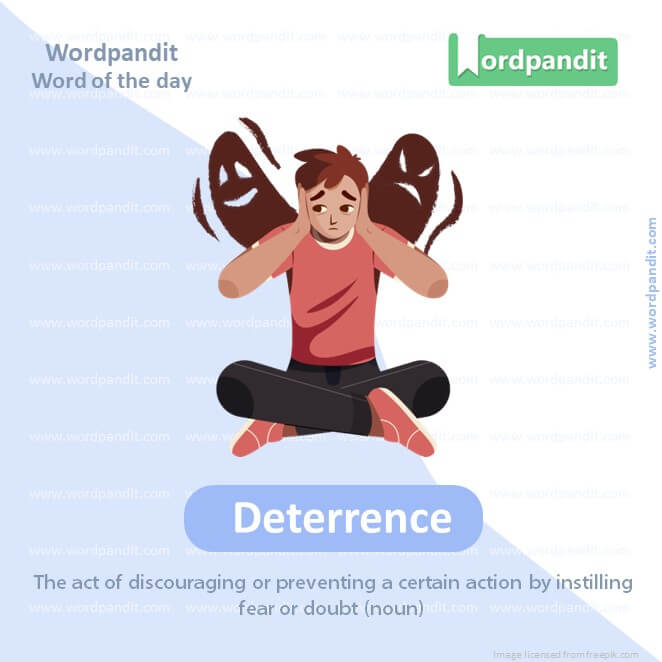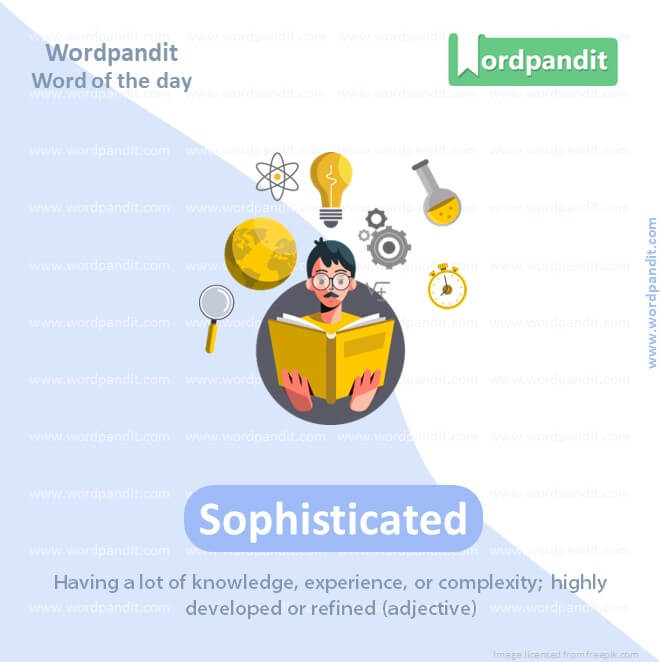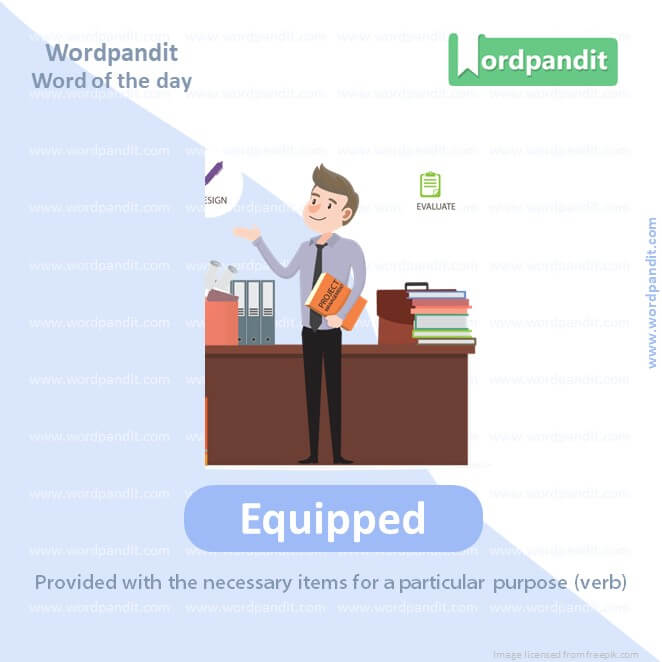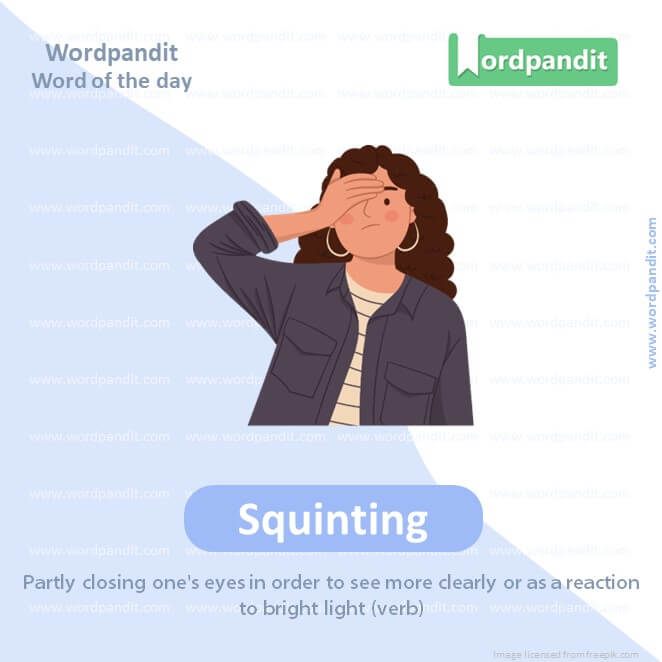Daily Vocabulary Words: Enhance Your Lexicon with Leading Newspapers & Publications
Welcome to the Daily Vocabulary section at Wordpandit!
Our mission is straightforward: to bring you essential vocabulary words featured in top newspapers and publications worldwide. By focusing on words you’ll encounter in renowned sources, we aim to help you enhance your vocabulary effectively and practically.
Our selection includes words from:
– The New York Times
– The Washington Post
– Scientific American
– BBC
– The Guardian
– Psychology Today
– Wall Street Journal
– The Economist
– The Hindu
– The Times of India
– The Economic Times
– Hindustan Times
– Live Mint
– The Indian Express
– And many more.
We are committed to your vocabulary development. Simply visit this section regularly and explore the daily posts. This is your go-to repository for commonly used words, providing significant practical benefits by familiarizing you with vocabulary from the leading publications listed above.
Make it a habit to visit our website daily and expand your lexicon with words from top newspapers and publications. (edited)

WORD-1: Deterrence
CONTEXT: There is actually a stable balance of deterrence there right now.
SOURCE: New York Times
EXPLANATORY PARAGRAPH: If you do something to stop someone from doing something bad, like putting up a “no trespassing” sign to keep people away, that’s called “deterrence.” It’s about making sure people think twice before doing something wrong.
MEANING: The act of discouraging or preventing a certain action by instilling fear or doubt (noun)
PRONUNCIATION: dih-TER-uhns
SYNONYMS: Prevention, discouragement, hindrance, obstruction, deterrent
USAGE EXAMPLES:
1. The presence of security cameras acts as a deterrence to thieves.
2. The harsh penalties were intended as a deterrence against speeding.
3. Effective deterrence can help keep crime rates low.
4. The company’s new policy served as a deterrence to unethical behavior.

WORD-2: Sophisticated
CONTEXT: They have learned to arm, build, adapt and deploy some of the most sophisticated precision weaponry in the world. That weaponry, provided by Iran, can hit a three-foot-wide target 500 miles away.
SOURCE: New York Times
EXPLANATORY PARAGRAPH: If something is “sophisticated,” it means it is very advanced or complicated, like a really cool robot with lots of buttons and features. It’s not simple, but smart and complex.
MEANING: Having a lot of knowledge, experience, or complexity; highly developed or refined (adjective)
PRONUNCIATION: suh-fis-ti-kay-tid
SYNONYMS: Advanced, complex, refined, elaborate, cultured
USAGE EXAMPLES:
1. The new smartphone has a sophisticated design with many features.
2. She used a sophisticated method to solve the tricky problem.
3. The software is so sophisticated that it can predict weather patterns.
4. His argument was sophisticated and well-thought-out.

WORD-3: Arrayed
CONTEXT: The young U.S. soldiers and sailors arrayed against them cut their teeth on video games, but now find themselves playing the real thing, deploying with software and cursors the world’s most sophisticated countermeasures and interceptors to swat away almost every rocket and drone the Iranian proxies have been throwing at them.
SOURCE: New York Times
EXPLANATORY PARAGRAPH: If things are “arrayed,” it means they are neatly and carefully arranged or placed in a certain order, like if you line up your toys in a row on a shelf. It’s about organizing things nicely.
MEANING: Placed or arranged in an orderly, often attractive, formation (verb)
PRONUNCIATION: uh-RAYD
SYNONYMS: Arranged, positioned, displayed, organized, lined up
USAGE EXAMPLES:
1. The books were arrayed neatly on the shelves.
2. The soldiers were arrayed in a perfect formation.
3. The table was arrayed with an assortment of delicious dishes.
4. The flowers were arrayed in colorful patterns for the event.
WORD-4: Reconstituting
CONTEXT: These bases were designed and situated to block ISIS from reconstituting its supply lines and critical mass; they were never meant to deter or attack the vast modern rocket arsenals of Iran and its proxies.
SOURCE: New York Times
EXPLANATORY PARAGRAPH: If you “reconstitute” something, it means you are putting it back together or making it like it was before, like if you mix water with powdered juice to make it into a drink again.
MEANING: To restore or put something back into its original state (verb, present participle).
PRONUNCIATION: ree-KON-sti-too-ting
SYNONYMS: Restoring, rebuilding, reconstructing, reforming, remaking
USAGE EXAMPLES:
1. The scientist was reconstituting the sample for further testing.
2. They are reconstituting the old committee to review the policies.
3. After the storm, the community worked on reconstituting the damaged areas.
4. The chef reconstituted the dried mushrooms by soaking them in water.
WORD-5: Unscathed
CONTEXT: A soldier in the bunkhouse right next to the one hit told us he was talking to his wife on FaceTime when the drone struck; protected by a thick cement barrier, he emerged shaken but unscathed.
SOURCE: New York Times
EXPLANATORY PARAGRAPH: If you come out of a situation “unscathed,” it means you didn’t get hurt or damaged at all, like if you fall but don’t get any scratches or bruises. It means you’re safe and sound.
MEANING: Not harmed or damaged in any way (adjective).
PRONUNCIATION: un-SKAYTHD
SYNONYMS: Unharmed, untouched, intact, safe, undamaged
USAGE EXAMPLES:
1. The driver was lucky to emerge unscathed from the accident.
2. Despite the challenges, she came through the ordeal unscathed.
3. The building was unscathed by the fire thanks to the firefighters.
4. He escaped the dangerous situation unscathed.

WORD-6: Equipped
CONTEXT: It was equipped with six swordlike blades that once it penetrates a vehicle slice and dice anything in their path like a blender, which is why the missile has been nicknamed the “Flying Ginsu.”
SOURCE: New York Times
EXPLANATORY PARAGRAPH: If you are “equipped” with something, it means you have all the things you need to do a job or task, like having a backpack with all your school supplies ready for class. It means you’re ready and prepared.
MEANING: Provided with the necessary items for a particular purpose (verb)
PRONUNCIATION: ih-KWIPT
SYNONYMS: Prepared, supplied, outfitted, furnished, ready
USAGE EXAMPLES:
1. The team was equipped with the latest technology for the project.
2. He felt well-equipped to handle the new job responsibilities.
3. The emergency kit was equipped with all essential items.
4. The workshop was equipped with high-quality tools.

WORD-7: Squinting
CONTEXT: The first, and often last, line of defense is usually a 20-something U.S. soldier or sailor squinting at a computer screen, trying to decide with software within seconds what is coming his or her way and engaging the right countermeasures.
SOURCE: New York Times
EXPLANATORY PARAGRAPH: If you are “squinting,” it means you are looking with your eyes partly closed, like when the sun is very bright and you try to see better by narrowing your eyes.
MEANING: Partly closing one’s eyes in order to see more clearly or as a reaction to bright light (verb)
PRONUNCIATION: SKWIN-ting
SYNONYMS: Narrowing eyes, peering, blinking, straining, glimpsing
USAGE EXAMPLES:
1. She was squinting in the bright sunlight.
2. He was squinting at the tiny print on the map.
3. The glare from the snow made him squint while driving.
4. They saw him squinting at the distant object through the binoculars.
WORD-8: Embodied
CONTEXT: We don’t swear an oath to a person or a king, we swear an oath to an idea, embodied in the Constitution and ingrained in our democracy, that all men and women are created equal.
SOURCE: New York Times
EXPLANATORY PARAGRAPH: If something “embodies” an idea, it means it shows or represents that idea clearly, like if a character in a story embodies bravery, they show what
bravery looks like.
MEANING: To represent or exemplify an idea or quality in a visible or tangible form (verb, past tense).
PRONUNCIATION: im-BAH-deed
SYNONYMS: Exemplified, represented, manifested, expressed, symbolized
USAGE EXAMPLES:
1. The statue embodied the spirit of freedom.
2. Her actions embodied the values of honesty and integrity.
3. The design of the building embodied modern architectural trends.
4. The character in the play embodied the traits of a hero.
WORD-9: Enlistee
CONTEXT: This one an enlistee who had worked his way up — repeats as he or she rises in rank.
SOURCE: New York Times
EXPLANATORY PARAGRAPH: An “enlistee” is someone who has signed up to join the military, like when someone decides to become a soldier and puts their name on the list to start training.
MEANING: A person who has signed up to join the military (noun).
PRONUNCIATION: en-LIST-ee
SYNONYMS: Recruit, volunteer, conscript, cadet, serviceman
USAGE EXAMPLES:
1. The enlistee went through rigorous training before becoming a soldier.
2. The recruiter spoke to the enlistees about their upcoming duties.
3. Each enlistee received a uniform and a list of instructions.
4. The enlistee was proud to serve their country.
WORD-10: Muffled
CONTEXT: The two soldiers holding up their little Stars and Stripes that provided the only color in this vast brown tableau, and the oath of allegiance to an idea, not a king, muffled by the protective blast walls of this far-flung base in a region that has mostly known only the opposite.
SOURCE: New York Times
EXPLANATORY PARAGRAPH: If something is “muffled,” it means its sound is not very clear or loud, like if you wrap a bell in a blanket so it doesn’t ring loudly. It’s about making the sound softer or quieter.
MEANING: Made quieter or less distinct, often by covering or wrapping (adjective).
PRONUNCIATION: MUHF-uhld
SYNONYMS: Muted, dampened, softened, hushed, quieted
USAGE EXAMPLES:
1. The sound of the rain was muffled by the thick walls of the house.
2. He spoke in a muffled voice because his mouth was covered.
3. The muffled noises from the next room made it hard to hear clearly.
4. The music was muffled by the heavy curtains in the room.
Vocabulary SSC
Navigating the path to success in competitive examinations like the Staff Selection Commission (SSC) triggers a keen focus on ‘vocabulary SSC’. This collection of words, often prominent in SSC examinations, holds paramount importance, and forms a significant part of a candidate’s linguistic preparation. However, mastering ‘vocabulary SSC’ is a process that requires deliberate strategy and dedication.
To begin the journey with ‘vocabulary SSC’, a structured learning regime is key. Break the learning process into manageable chunks. Concentrate on a set number of words each day. This steady, consistent approach reduces the risk of burnout and enhances long-term retention of vocabulary.
The strategic use of memory aids can significantly boost the learning of ‘vocabulary SSC’. Utilize flashcards, memory apps, or even create personal mnemonics to help remember each word and its meaning more effectively. Associating a word to a personal event or object creates a lasting mental connection, making recall easier.
To truly master ‘vocabulary SSC’, it’s crucial to engage with the words in different contexts. Incorporating the words into daily reading and writing practices provides exposure to their usage in varied situations. This practical application reinforces the understanding of ‘vocabulary SSC’, enhancing the ability to employ these words accurately in the exam setting.
Regular revision is a must when preparing ‘vocabulary SSC’. Spaced repetition, interspersing the study with regular breaks, and regularly revisiting the words learned, ensures the words stay firm in your memory, ready to use when needed.
In essence, preparing ‘vocabulary SSC’ is an exercise in action-oriented constant learning. Strategic use of learning tools, practical application, and regular revision are key aspects of getting a grip on ‘vocabulary SSC’. As you stride through this process, you inch closer to acing your SSC examinations with an enriched vocabulary and boosted confidence.











